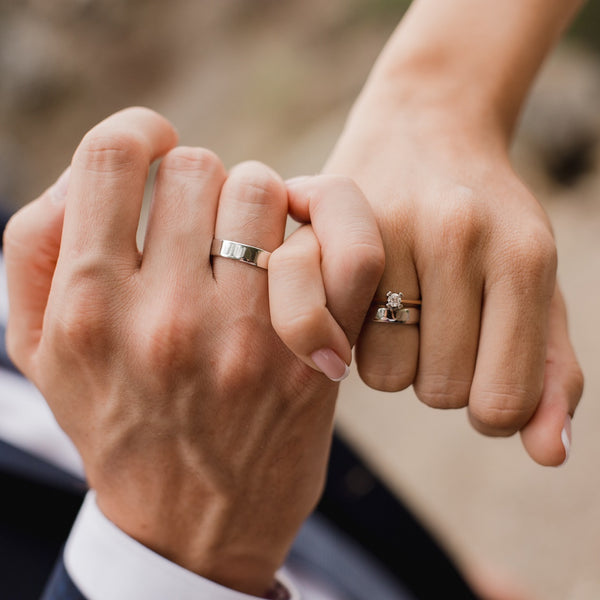When shopping for lab-grown diamonds, understanding the difference between various certification labs is crucial to making an informed decision. Two of the most reputable and well-known gemological laboratories in the world are the International Gemological Institute (IGI) and the Gemological Institute of America (GIA). Both offer detailed grading reports for diamonds, but there are some key differences when it comes to their grading systems, particularly for lab-grown diamonds. If you are weighing the options of igi vs gia lab grown diamonds, it’s essential to understand how these two organizations compare in terms of grading standards, reputation, and the quality of their reports.
The Role of Certification in Lab-Grown Diamonds
Before diving into the IGI vs GIA debate, it’s important to understand why certification matters when it comes to lab-grown diamonds. Certification from a respected gemological institute ensures that a diamond has been evaluated based on specific criteria like cut, color, clarity, and carat weight, otherwise known as the 4Cs. For lab-grown diamonds, certification is even more essential because it provides reassurance that the diamond is indeed created in a lab and is of the quality it is marketed to be.
Both IGI and GIA are respected organizations that offer certification for lab-grown diamonds. However, the differences in their grading processes, standards, and their recognition in the diamond industry could impact your buying decision. Understanding the nuances of IGI vs GIA lab-grown diamonds is vital to ensuring you make the right choice when selecting a lab-grown diamond.
IGI vs GIA Lab-Grown Diamonds: Grading Standards
The grading of lab-grown diamonds is essentially the same as for natural diamonds, which means both IGI and GIA evaluate diamonds based on the 4Cs. However, the way each organization assesses these diamonds may vary slightly, especially in their emphasis on specific attributes. IGI is known for grading diamonds with a more lenient approach, while GIA is often considered more stringent in its grading system.
For example, when it comes to color grading, both IGI and GIA use the same D-to-Z scale for diamonds, but GIA is often seen as more conservative in awarding the highest color grades. In terms of clarity, GIA may be stricter in identifying and noting inclusions, which can make a GIA-graded lab-grown diamond appear slightly more flawless than an IGI-graded one with the same clarity.
Another difference in the IGI vs GIA lab-grown diamond grading process is how each organization handles the designation of a diamond as “lab-grown.” While both labs clearly label diamonds as lab-grown on their certificates, GIA has a more rigorous verification process and takes extra care to ensure that the diamond’s lab-grown origin is properly recorded. As a result, GIA’s lab-grown diamonds often carry a higher level of trust among diamond buyers, especially those who are concerned about the authenticity of lab-grown diamonds.
The Reputation of IGI vs GIA Lab-Grown Diamonds
The reputation of the certification authority is a key factor when deciding between IGI vs GIA lab-grown diamonds. GIA is widely regarded as the gold standard in the diamond industry, known for its thorough and consistent grading practices. GIA’s reputation has been built over decades of experience and research in gemology, and its reports are trusted by many jewelers and consumers alike. When purchasing a GIA-graded diamond, buyers can be confident that they are receiving a highly accurate and reliable grading.
In comparison, IGI is also a respected lab, but its reputation is often seen as less prestigious in the eyes of some diamond professionals and consumers. While IGI has made significant strides in improving its grading accuracy, some buyers feel that IGI’s grading practices tend to be more lenient than GIA’s, particularly in terms of clarity and color. As a result, IGI lab-grown diamonds may be more affordable due to slightly more generous grading, but some buyers may feel that GIA provides an extra layer of assurance when it comes to the accuracy and consistency of its reports.
While both IGI and GIA are highly regarded, GIA’s more established reputation in the diamond industry makes it the preferred choice for many buyers who are looking for the most trusted and widely recognized certification for their lab-grown diamond purchase.
IGI vs GIA Lab-Grown Diamonds: Which One is More Affordable?
Another important consideration when comparing IGI vs GIA lab-grown diamonds is the price difference. Generally speaking, lab-grown diamonds certified by IGI tend to be less expensive than those certified by GIA. The reason for this price difference lies in the grading standards of each lab. Because IGI tends to be more lenient in its grading, the diamonds it certifies may be listed at lower prices, even if they are of similar quality to GIA-graded diamonds.
For example, an IGI-graded diamond with a specific clarity or color grade may be priced more affordably than a GIA-graded diamond with the same characteristics. While this price difference may seem appealing to some buyers, it’s important to consider whether the lower price is due to a more relaxed grading system or simply because the diamond is being sold by a retailer that specializes in IGI-certified diamonds.
If you’re looking for a lab-grown diamond with a rigorous and widely recognized certification, GIA may be worth the extra cost. However, if you are seeking an affordable option that still offers a solid level of certification and trust, IGI may provide an excellent choice for your needs.
The Impact of Certification on Resale Value
When investing in a lab-grown diamond, resale value is something that many buyers consider. While lab-grown diamonds don’t typically hold the same resale value as natural diamonds, certification from a reputable lab can still have an impact on how easily a diamond can be resold in the future. GIA’s reputation as the leading authority in diamond grading often makes GIA-graded lab-grown diamonds more appealing to buyers in the secondary market, potentially leading to a higher resale value.
In contrast, lab-grown diamonds certified by IGI may have a lower resale value, as some buyers may perceive them as being graded more leniently. However, it’s important to note that the resale value of lab grown diamonds is still significantly lower than that of natural diamonds, and the market for reselling them is still developing. Even so, GIA’s higher reputation and more stringent grading practices may make it a better option if resale value is a top priority for you.
Conclusion: Which Lab-Grown Diamond Certification Is Right for You?
Choosing between IGI vs GIA lab-grown diamonds ultimately comes down to your personal preferences and priorities. If you value the prestige, consistency, and stricter grading standards of a renowned institution, GIA is likely the better choice. GIA’s certification offers peace of mind for many buyers, ensuring that their lab-grown diamond has been thoroughly evaluated according to rigorous criteria.
On the other hand, if you’re looking for a more affordable option with a solid reputation for grading lab-grown diamonds, IGI may be the right fit for you. IGI-certified diamonds offer excellent value and can be a great choice if you’re more focused on getting a beautiful lab-grown diamond at a lower price.
Ultimately, both IGI and GIA provide reliable certification for lab-grown diamonds, but your decision should be based on what matters most to you—whether it’s price, trustworthiness, or grading consistency. Whatever you choose, make sure to do your research and select a diamond that suits your needs and preferences.





